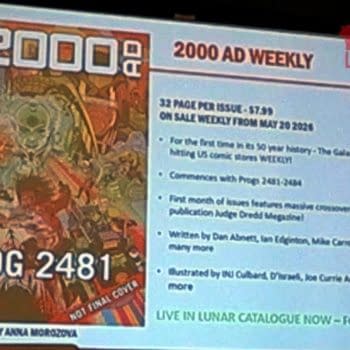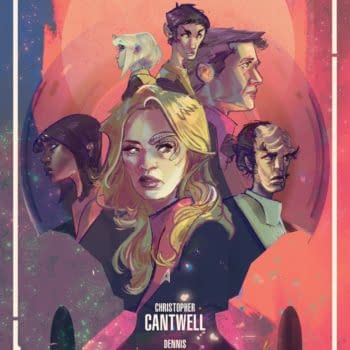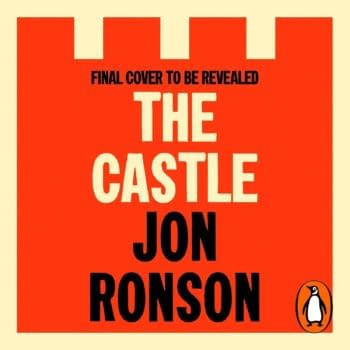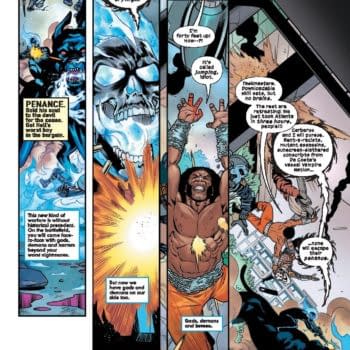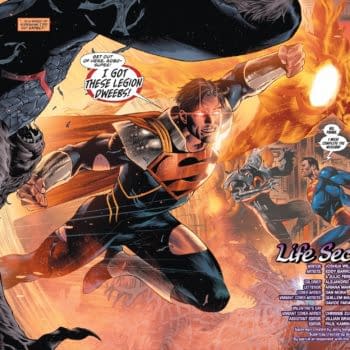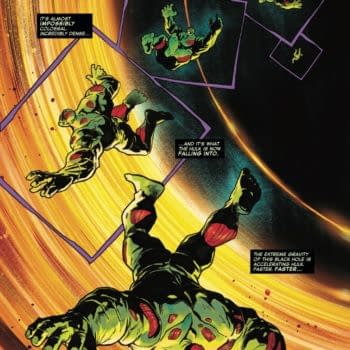Posted in: Comics | Tagged: American Flagg, Comics, dynamite, entertainment, howard chaykin, joe casey, The Shadow: Midnight In Moscow
"Clothes, Cars, Guns And Wantonness Are My Bread And Butter" – Howard Chaykin Talks The Shadow
Howard Chaykin has been interviewed a lot since taking on The Shadow: Midnight In Moscow, but it has taken the likes of fellow writer Joe Casey to come up with questions that Chaykin has enjoyed answering. The two discuss the Dynamite series and other properties from Chaykin's past.

HOWARD CHAYKIN: As will become clear in issue six, this series leads directly into the 80s stuff.
JC: You've talked before about how you never had much reverence for the Shadow, that you weren't a fan of the old pulps, etc. Is it easier to tackle IP's that you don't have a particular affinity or nostalgia for? Does that give you a freedom to adapt the material as you see fit?

That said, I can't begin to imagine writing, let alone drawing Burroughs or pastiches of his work these days, while the intrinsic tropes of the crime pulps–clothes, cars, guns and wantonness are my bread and butter.
And truthfully, I don't really think along the lines of the sort of freedom you mention. I don't honestly believe that the concepts are the brand, in our world–rather, it's the talent.

HC: I'd like to flatter myself into thinking that had I had any inkling that STAR WARS was going to be such a big deal, I'd have done a better job. The work is sub-par, and will haunt me to my grave. I remain ashamed.
AMERICAN FLAGG! is the result of a few years of woodshedding in other fields, developing a respect for craft, and a deeper understanding of what both I and comics were capable of, if you'll excuse a dangling participle.
I spent six months researching comics and came up with an approach that maximized my skillset, and that was that.
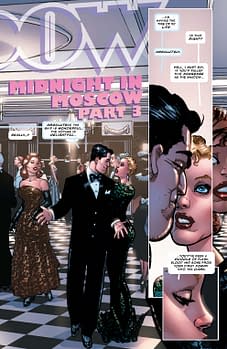
HC: I moved to California in 1985 because I hoped to get old, and recognized that I was never going to be a big moneymaking superstar in comics–I'm just not that guy–and that I needed to plan for my golden years.
At the time, becoming a screenwriter seemed like a possible shot–which never panned out, but led me to television. I never worked on a show I'd watch, but I am forever grateful for the years I spent staffing those productions.
When I got fired from my last TV gig, I made the decision to never seek work in the industry again. I flew to New York, and stated this to the people at DC–who had a hard time believing me. I went to work for them and have been reasonably happy ever since. I should point out that I would have gone to see the folks at MARVEL at that time too, had I had any idea of the quality of work being done there since Joe Q's ascendancy. That took a few years, but I ended up there too.
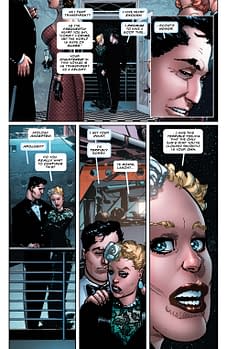
HC: Thanks hugely. BLACKHAWK was the first comic book I ever stole, and remains one of my favorites from childhood. I wasn't solicited by DC to continue on the book. I might have embarassed them with some of the graphic and sociological elements of the miniseries.
I thought Marty and Rick did terrific stuff with their run.
I love this material, and I'd love to do more BLACKHAWK stuff, but I earnestly believe that the character and concept belongs in a forties context–which makes it commercially unviable.
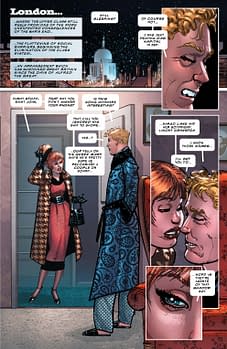
HC: A very difficult and thoughtful question, that deserves an equally thoughtful answer.
I have a photograph of me at 17 on my bulletin board, just above my drawing table. In the shot I weigh 265 pounds, and I'm tying a rope belt. What I'm getting at here is that I used to be every Hollywood douchebag's image of the archetypal fanboy.
As I said above, I believe in my heart that the talent is the brand in our business, while the companies for whom we work have an understandably deep commitment to selling the content as the brand.
What becomes problematic is the stagnation of the marketplace. we now have men in their fifties reading the same titles that they read when they were ten. In order to make this material more palatable to an older reader, a veneer of gravity has been shellacked onto what is basically and intrinsically children's material–as if, for example, CURIOUS GEORGE were to return to Africa with the Man in the Yellow Hat to combat the Ebola epidemic.
And note, lest you think I hold myself above this sort of thing, forget about it. I'm a working comic book professional, and I swim in the same waters I've identified above.
JC: How annoying is it to answer these questions from a fellow professional just trying to promote his own Dynamite series (Captain Victory and the Galactic Rangers #1, coming out the very same week as The Shadow: Midnight In Moscow #3)? I mean, can't we just have a normal, fucking conversation sometime…?
HC: Bullshit. This interview has been more fun and illuminating for this old bastard than anything like it in a long time–not including the fabulous chat with the esteemed Mark Waid, of course.
For more on The Shadow: Midnight In Moscow #3, click here.









